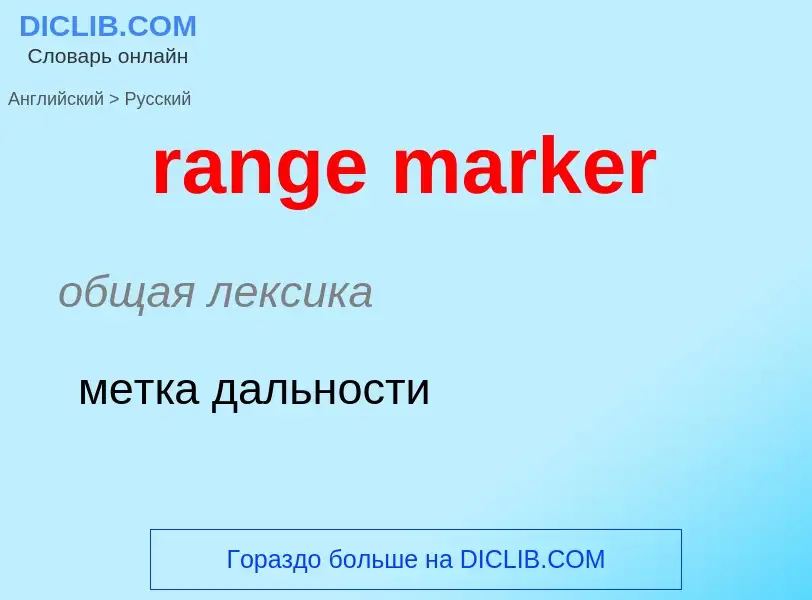Traducción y análisis de palabras por inteligencia artificial ChatGPT
En esta página puede obtener un análisis detallado de una palabra o frase, producido utilizando la mejor tecnología de inteligencia artificial hasta la fecha:
- cómo se usa la palabra
- frecuencia de uso
- se utiliza con más frecuencia en el habla oral o escrita
- opciones de traducción
- ejemplos de uso (varias frases con traducción)
- etimología
range marker - traducción al ruso
общая лексика
метка дальности
[fri:'reindʒ]
прилагательное
сельское хозяйство
находящийся на свободном выгуле
Definición
Wikipedia
In linguistics, a marker is a free or bound morpheme that indicates the grammatical function of the marked word, phrase, or sentence. Most characteristically, markers occur as clitics or inflectional affixes. In analytic languages and agglutinative languages, markers are generally easily distinguished. In fusional languages and polysynthetic languages, this is often not the case. For example, in Latin, a highly fusional language, the word amō ("I love") is marked by suffix -ō for indicative mood, active voice, first person, singular, present tense. Analytic languages tend to have a relatively limited number of markers.
Markers should be distinguished from the linguistic concept of markedness. An unmarked form is the basic "neutral" form of a word, typically used as its dictionary lemma, such as—in English—for nouns the singular (e.g. cat versus cats), and for verbs the infinitive (e.g. to eat versus eats, ate and eaten). Unmarked forms (e.g. the nominative case in many languages) tend to be less likely to have markers, but this is not true for all languages (compare Latin). Conversely, a marked form may happen to have a zero affix, like the genitive plural of some nouns in Russian (e.g. сапо́г). In some languages, the same forms of a marker have multiple functions, such as when used in different cases or declensions (for example -īs in Latin).



![A cotton spindle spike in [[Tel Aviv]] pavement, used as a marker for public area [[cadastral surveying]]. A cotton spindle spike in [[Tel Aviv]] pavement, used as a marker for public area [[cadastral surveying]].](https://commons.wikimedia.org/wiki/Special:FilePath/SurveyCottonSpindleSpike1.jpg?width=200)

![Baby free range [[chicken]] in the hand of a person in [[Ishwarganj Upazila]], [[Mymensingh]], [[Bangladesh]] Baby free range [[chicken]] in the hand of a person in [[Ishwarganj Upazila]], [[Mymensingh]], [[Bangladesh]]](https://commons.wikimedia.org/wiki/Special:FilePath/Baby Chicken in Ishawarganj, Mymensingh, Bangladesh.jpg?width=200)
![Small-scale free range farming in the [[Northern Black Forest]] Small-scale free range farming in the [[Northern Black Forest]]](https://commons.wikimedia.org/wiki/Special:FilePath/Busenbach Freilandhaltung-Hühner.jpg?width=200)

![Free range ducks in [[Hainan]] Province, China Free range ducks in [[Hainan]] Province, China](https://commons.wikimedia.org/wiki/Special:FilePath/Duck farm in Hainan 02.jpg?width=200)
![geese]] in Germany geese]] in Germany](https://commons.wikimedia.org/wiki/Special:FilePath/Kirbachhof Gaense.jpg?width=200)

